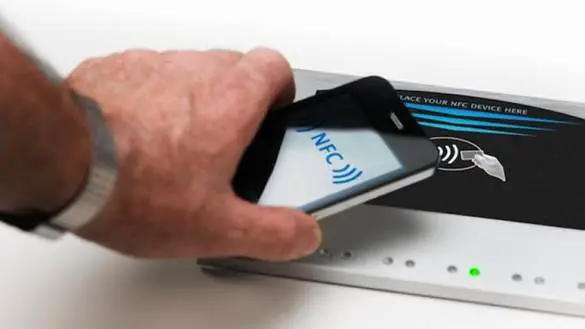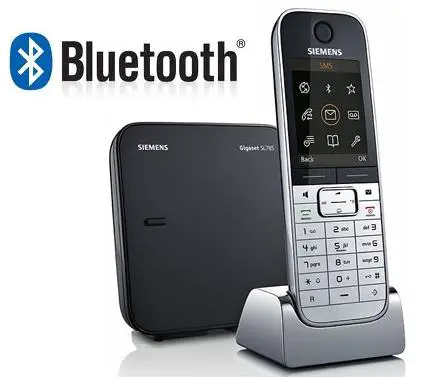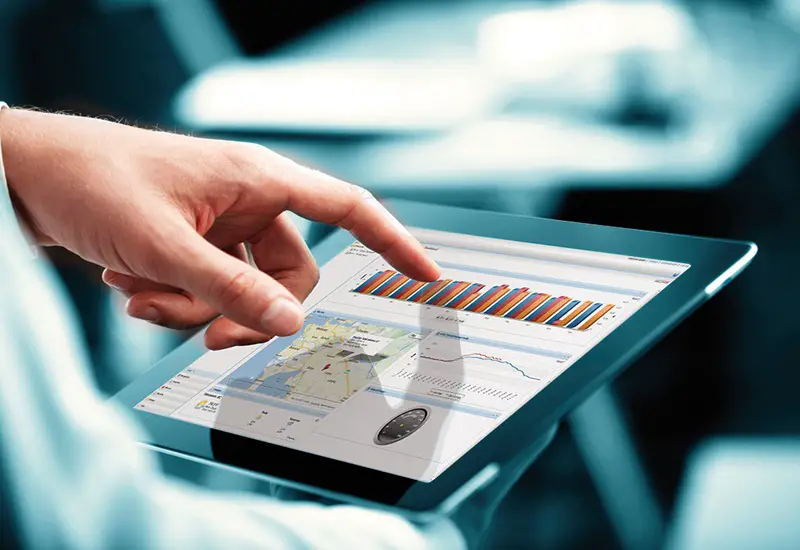Since Nokia’s creation of the first NFC phone in 2006, Near Field Communication (NFC) technology has become more and more standard in smartphones. This year the Windows 8 Phone included its file sharing Tap+Send app using NFC technology, and most Apple fans are anxiously awaiting the incorporation of NFC in the iWallet. In fact, many people were surprised that the fifth generation iPhone doesn’t include NFC technology for making cellular electronic payments, a highly anticipated function of NFC.
While it may be still two to three years out, the continuing development of NFC technology will definitely change the way we live our lives. However, as with most technological advances, these conveniences will come with their own set of risks.

How NFC will be used in the future
- Interactive Gaming is already a reality and will probably become even more popular. The first NFC-powered game, Skylanders, was released in late 2011. It includes an NFC chip that allows players to manipulate real-world figurines which are transposed into digital data in the virtual world.
- Online shopping with an NFC reader would allow you to place a credit card on the reader in order to automatically enter your payment information into the computer. Instead of a pin or password, the NFC reader would request a gestural password which you would do with your hand to accept the payment.
- File sharing will be fast, simple and thorough with NFC technology. For example, you might tap your phone on the sign at the bus stop and have a PDF file of the bus schedule sent to your phone. You could also tap a movie poster with your phone and be sent to a website where you can buy your e-tickets. Businesses can also have customers tap signs and it can take them to web forms to give the business feedback.
- NFC technology in cars will allow you to unlock and start your car with your phone as well as access information about your vehicle such as battery levels or mechanical issues via text message.
- Perhaps the most anticipated use of NFC technology is for electronic payments. Imagine touching your phone to a reader any time you need to make payment to a store, movie theater or restaurant. This technology is already being used in Japan and much of Europe but is yet to be adopted fully in the United States.
[Recommended read: Openarch System Could Change The Way We Live and Shop]
Possible risks of using NFC technology
While it seems a bit risky to carry all your financial and credit card information on a singular device, in some ways NFC technology is actually more secure. Your personal information would, of course, be jeopardized if you lost your phone, but then again, you run the same risk by losing your wallet now. In the same way you would handle a lost wallet, a stolen phone carrying your personal information would need to be reported to your financial institution to protect your accounts and identity.
The security risks are somewhat resolved by the fact that the NFC card and reader have to be very close, nearly touching, to perform a transaction. This means that data can’t be stolen from afar. Additionally, encryption would still be used to keep data confidential on a wireless connection as well as identity verification such as passwords or pins.
Despite these safeguards, there are some inherent risks in cellular electronic payments and other NFC transactions
- Eavesdropping, or “listening in,” does not require that a criminal pick up every signal in order to gather private information. This can be deterred by using secure channels and encrypted data.
- Data corruption or manipulation might be another criminal tactic. This can be avoided using secure channels for communication.
- Theft is probably the greatest risk because the information is right there available to any person holding the phone or other device. The best defense against this risk is first keeping track of the NFC device itself, and second, setting strict security settings including strong passwords and pin numbers or use a face recognition software such as FastAccess.
As with most technology, diligent safeguarding of your personal information will allow you to reap the benefits of these modern conveniences with minimal risk. NFC will be an exciting step in the digital world.
[Recommended read: How Mobile Phones Have Changed Our Lives]
Author Bio: The author of this article is Jared Jaureguy. Follow him on Twitter @JaredJaureguy.




All the pros and cons are weigh aptly. Yeah NFC is the next big thing that has happened in tech circle but the it is unsafe from security point of view. Hope in future, it will be much more secure and much more usable.
Thanks for this info!!! Great post!!!
NFC will definitely change our lives, It is bridge between Real and Virtual world. How just by walking in Real World you tap on NFC Tag and it will take you into Digital World.
NFC is an ideal technology to help bring about the vision of a world where physical and virtual objects are linked through the exploitation of automatic and easy-to-apply data capture.
Good post peter what’s the difference between NFC and bluetooth?
Is it the same technology or different?
Ow wow, the modern technologies never stay the same) In terms of non-payment use cases for NFC, many general ideas were discussed. A retail expert suggested the ability to tap as you enter a store to load your loyalty account with special deals just for you.
i love NFC though i dont own NFC device..and i have never played skylanders but yes i love technology and i think NFC is a milestone in data transfer trchnologies
NFC is way secure, there no security threat that is why it is being used in payments. Unlike Bluetooth where in 30 meter working distance anyone can breach the security but in NFC there is no one can in front of your eyes.
Wow if NFC could perform the mentioned tasks in future, I would love to own one soon. It will be so much easier to perform transactions and booking tickets, etc. The security matter is there but I guess we have to deal with it as there are bound to be some precautions.
Technology comes in good and bad I supposed 🙂
I actually haven’t heard of NFC before. Thanks for this wonderful piece of information.
NFC is the technology of future apart from its applications in the smartphone, though it do not provide more speed than Bluetooth. but NFC has much wider range of applications apart from the file transfer.
in this article you’ve given the glimpse of these applications.
very nicely written and quite informative.:)
Thanks for sharing your thoughts, Rohit!
What a great article about NFC, well constructed and balanced. I love the part about:
” NFC technology in cars will allow you to unlock and start your car with your phone as well as access information about your vehicle such as battery levels or mechanical issues via text message.”
I also agree with the “The best defense against this risk is first keeping track of the NFC device itself, and second, setting strict security settings including strong passwords” I am guilty of this a a lot of friends tha tI know
Mike